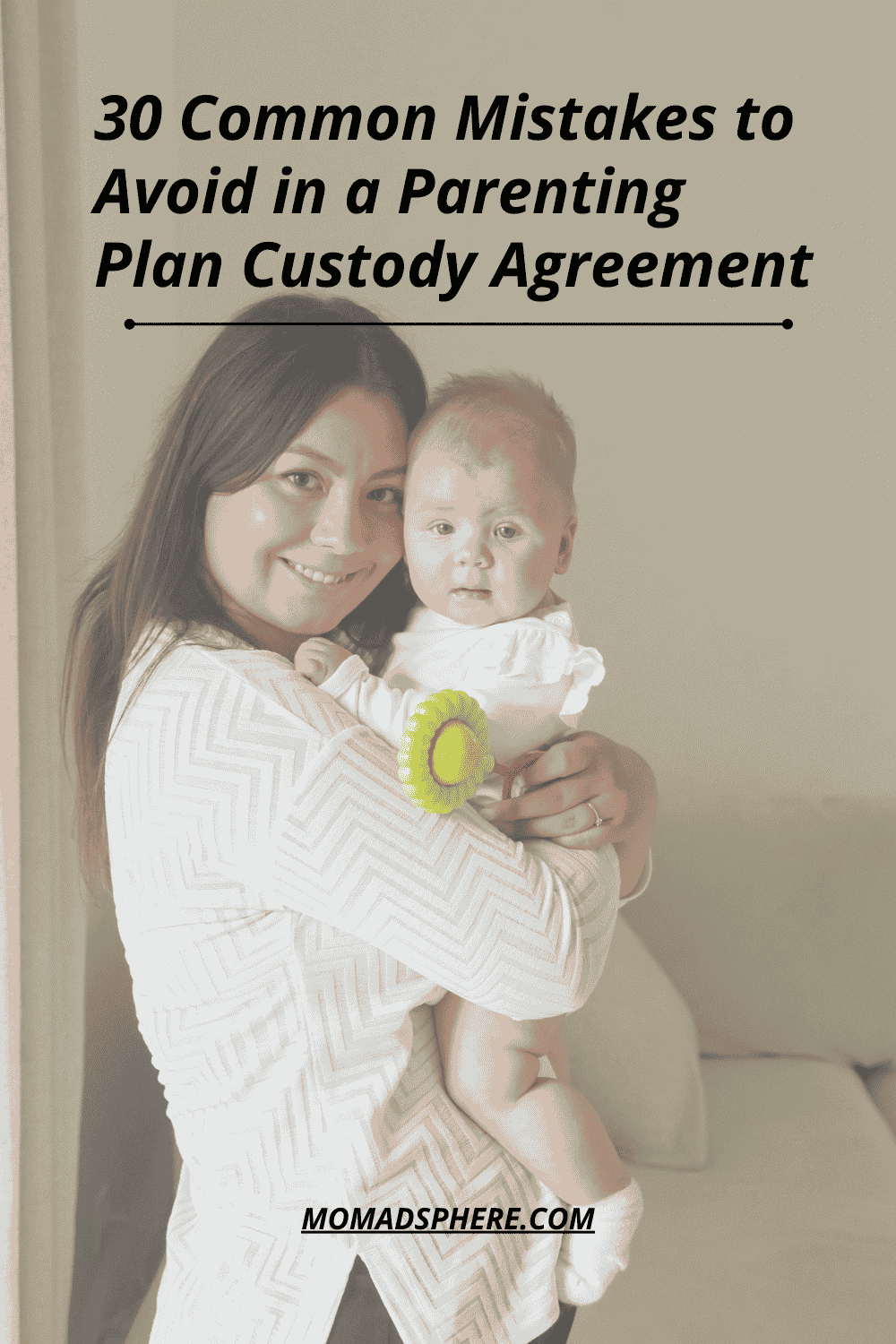Creating a parenting plan custody agreement is crucial for your child’s well-being, but common mistakes can lead to conflicts. Avoid vague schedules, ignoring the child’s preferences, or overlooking school activities. Failing to plan for holidays, relocation, or emergencies can cause stress. Always prioritize the child’s best interests, document everything in writing, and seek legal advice. A well-thought-out plan ensures stability, reduces disputes, and fosters a healthy co-parenting relationship for your child’s future. 🌟👨👩👧👦
30 Common Mistakes to Avoid in a Parenting Plan Custody Agreement of All Time 👨👩👧👦⚖️
Creating a parenting plan custody agreement is one of the most critical steps in ensuring the well-being of your children after a separation or divorce. However, it’s easy to make mistakes that can lead to confusion, conflict, and even legal battles down the road. To help you navigate this complex process, we’ve compiled a list of 30 common mistakes to avoid when drafting a parenting plan custody agreement. Let’s dive in! 🚀
1. Not Prioritizing the Child’s Best Interests 🧒❤️: The primary focus of any custody agreement should be the child’s well-being. Avoid making decisions based on personal grievances or emotions. Always ask yourself, “Is this in the best interest of my child?”
2. Failing to Be Specific About Schedules 🗓️: Vague schedules like “alternate weekends” can lead to misunderstandings. Be clear about pick-up and drop-off times, holidays, and school breaks.
3. Ignoring the Child’s Preferences 🗣️: Depending on the child’s age and maturity, their input can be valuable. Ignoring their feelings may lead to resentment or emotional distress.
4. Overlooking School and Extracurricular Activities 🎒⚽: Ensure the plan accommodates school schedules, homework, and extracurricular activities. Missing these details can disrupt the child’s routine.
5. Not Including a Dispute Resolution Clause ⚖️: Conflicts are inevitable. Include a clause outlining how disputes will be resolved, such as through mediation or counseling.
6. Failing to Plan for Holidays and Special Occasions 🎄🎂: Holidays, birthdays, and vacations should be clearly outlined to avoid last-minute arguments.
7. Not Considering Transportation Logistics 🚗: Who will handle transportation? How far apart do the parents live? These details matter and should be addressed in the plan.
8. Ignoring Future Changes 🔄: Children grow, and circumstances change. Include a provision for modifying the agreement as needed.
9. Not Addressing Communication Between Parents 📞: How will parents communicate about the child’s needs? Establish guidelines for respectful and effective communication.
10. Overlooking Health Care Decisions 🏥: Specify who will make medical decisions, how insurance will be handled, and how emergencies will be managed.
11. Failing to Define “Decision-Making Authority” 📝: Clarify which parent has the final say on major decisions like education, religion, and health care.
12. Not Including a Right of First Refusal Clause 🤝: This clause gives the other parent the option to care for the child before a babysitter or third party is called.
13. Ignoring Tax Implications 💸: Custody agreements can affect tax filings. Consult a tax professional to understand the implications.
14. Not Documenting Everything in Writing 📄: Verbal agreements are not enforceable. Always put everything in writing and have it legally approved.
15. Failing to Consider the Child’s Age and Needs 👶🧑: A plan that works for a toddler may not work for a teenager. Tailor the agreement to the child’s developmental stage.
16. Not Addressing Relocation 🏠✈️: What happens if one parent wants to move? Include a clause addressing relocation and its impact on custody.
17. Overlooking the Importance of Consistency 🔄: Children thrive on routine. Ensure the plan provides stability and consistency.
18. Not Including a Parenting Coordinator 👩💼: A parenting coordinator can help resolve disputes and ensure the plan is followed.
19. Failing to Address Technology Use 📱💻: Set guidelines for screen time, social media use, and communication between the child and the other parent.
20. Ignoring the Impact of New Relationships 💔❤️: New partners can complicate custody arrangements. Discuss how new relationships will be introduced to the child.
21. Not Planning for Contingencies 🚨: What if a parent becomes ill or unable to care for the child? Include backup plans for emergencies.
22. Failing to Address Cultural or Religious Practices 🕍🕌: If cultural or religious practices are important, ensure they are respected in the plan.
23. Not Considering the Child’s Social Life 🎉👫: Friendships and social activities are important for a child’s development. Make sure the plan allows time for these.
24. Overlooking the Importance of Flexibility 🤹: While consistency is key, some flexibility is necessary to accommodate unexpected changes.
25. Not Addressing Parental Alienation 🚫: Parental alienation can harm the child’s relationship with one parent. Include measures to prevent this.
26. Failing to Include a Review Clause 📅: Schedule regular reviews of the agreement to ensure it continues to meet the child’s needs.
27. Not Considering the Financial Impact 💰: Custody arrangements can affect child support payments. Ensure the financial aspects are clearly outlined.
28. Ignoring the Emotional Impact on the Child 😢: Divorce is hard on children. Consider counseling or therapy to help them cope.
29. Not Seeking Legal Advice ⚖️: A family law attorney can help you avoid costly mistakes and ensure the agreement is fair and enforceable.
30. Rushing the Process ⏳: Take your time to create a thoughtful, comprehensive plan. Rushing can lead to oversights and regrets.
A well-crafted parenting plan custody agreement is essential for your child’s happiness and stability. By avoiding these 30 common mistakes, you can create a plan that works for everyone involved. Remember, the goal is to prioritize your child’s best interests and foster a healthy co-parenting relationship. Good luck! 🌈👨👩👧👦

